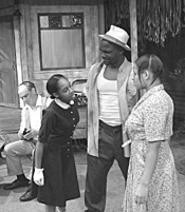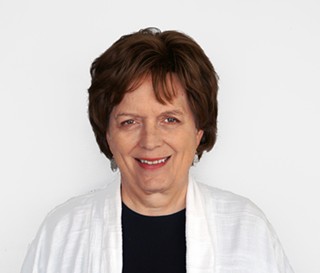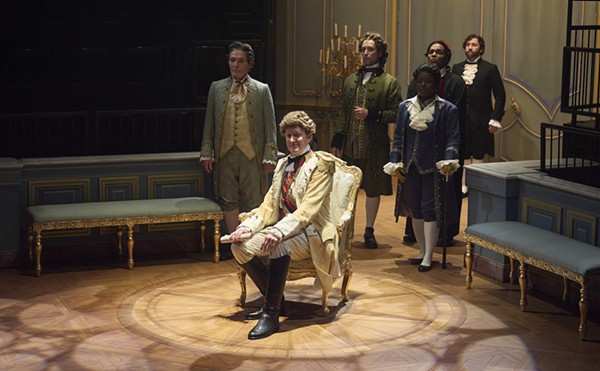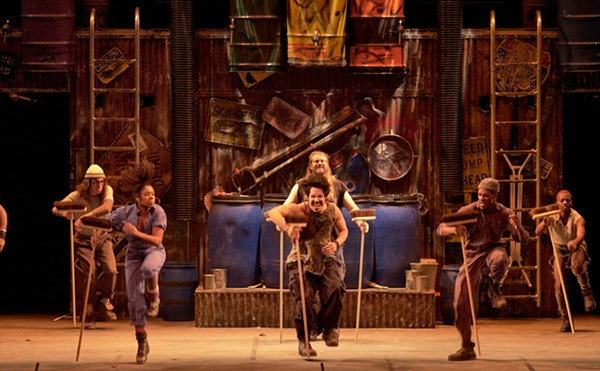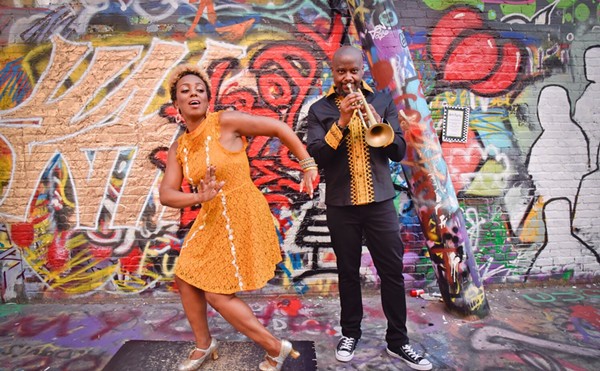Far from being an historical curiosity, racial animosity is unfortunately alive and well in this country, even though it is often cloaked by media happy talk, corporate doubletalk, and governmental benign neglect. Which is why a play that explores this subject with unblinking candor, such as No Niggers, No Jews, No Dogs now at the Karamu Performing Arts Theatre, is vitally important. It's also why it's so frustrating that, despite a frequently insightful script and some riveting performances, this production as a whole never quite achieves full cathartic resonance.
Playwright John Henry Redwood sets his play in 1949 rural North Carolina, where signs worded like the play's title were often seen outside redneck establishments. That's also where the black Cheeks family lives, in a small cabin with no running water, and scratches out a bare subsistence. Husband and father Rawl decides to leave his wife Mattie and their two daughters, Joyce and Matoka, for three months to join a digging crew that's relocating a white cemetery up North. In addition to his family, Rawl leaves behind Mattie's Aunt Cora -- a strange, wraith-like presence who wanders around, humming and carrying a lantern -- and Yaveni, a middle-aged Jewish scholar, who's in the area to research similarities between anti-black and anti-Jewish discrimination.
In Rawl's absence, Mattie is raped by a local good ol' boy. This is a fate that we learn also befell Aunt Cora years before, and when Cora's husband found out, he blew a hole in a couple of crackers and ended up as "strange fruit" himself -- which evidently sent Cora into her ambulatory catatonia. Back in present time, Mattie becomes pregnant from her rape and must decide whether to tell Rawl what happened -- thereby endangering him if he tries to seek revenge.
The parts that author Redwood and this production get right are the quicksilver dynamics within the Cheeks family and the intensity of the choice facing Mattie. With a good ear for dialogue and a sharp wit, the playwright crafts his characters through laughter as well as tears. One person ruefully comments on Rawl's new job, saying, "It's not a good idea to dig up dead people from their resting places." Seventeen-year-old Joyce responds, "White people do it all the time. They call it archaeology." Tamira Collins gives Mattie a rough-edged believability, and Desmond Jones is powerful as Rawl, tenderly hugging his girls one minute and seething with helpless rage later on. Their scenes together, whether loving or lashing out, are enormously evocative. The two girls, played by Stacey Golston (Matoka) and Erica Hobbs (Joyce), embody the essence of teens everywhere with their reflexive put-downs of each other and everyone else they know. And Wilhelmenia Glenn, as Aunt Cora, is a splendid spectral presence.
It's too bad that much of the action takes place offstage or in the past, including a highly unlikely moment of retribution. But the largest clinker is Yaveni, the genially pontificating mensch who's inserted into the proceedings to teach Rawl chess and teach all of us about the various facets of prejudice. Act 2 jolts to a complete stop as Yaveni meanders through a long monologue about his experience during Kristallnacht in Germany, passing for a goy in the U.S., the melodramatic end of his marriage, and a Negro-bashing episode in which he was an unwitting participant. Although well-intentioned, this maudlin side trip leads nowhere -- and is further damaged by a stiffly mechanical, flat delivery by John Thobaben.
Director Hassan Rogers' interpretation is sure-handed, especially in the moments of confrontation we are allowed to witness. But he often permits the two girls to speak too rapidly and without proper stage diction, losing laughs and pace. But even with its blemishes, No Niggers . . . at times approaches the brutal eloquence of Billie singing, "Pastoral scene of the gallant South/The bulging eyes and the twisted mouth." Be it in song or onstage, we can never be reminded too often of the ugliness that resides just below our apparently civilized surface.

